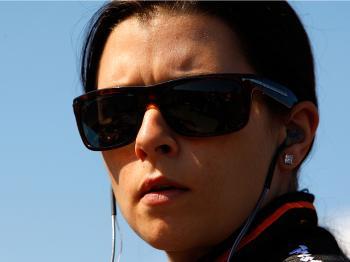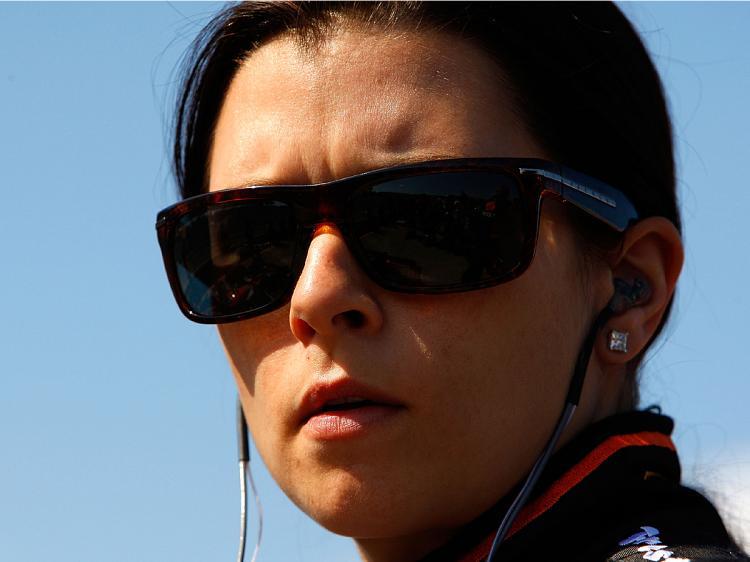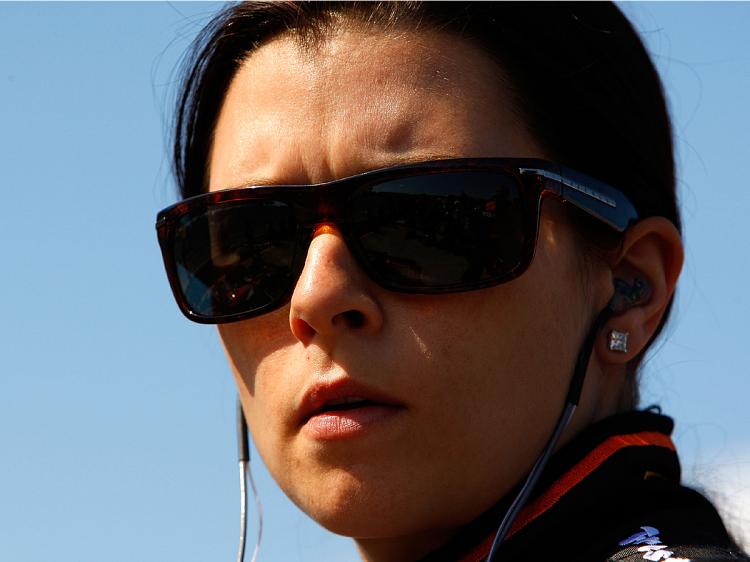In a radio interview with Sports Illustrated’s Dan Patrick, IndyCar driver Danica Patrick stated that she would use performance enhancing drugs if she knew she would not get caught.
Dan Patrick, halfway through a ten-minute interview, asked Danica, “If I said you could take a performance-enhancing drug that you would win Indy—hypothetically—not get caught”—at which point Danica Patrick broke in with, “Well, then, it’s not cheating, is it?”
“Would you do it?” Mr. Patrick continued. “But only you would know.”
“Then it’s not cheating, is it,” Ms. Patrick repeated, ‘if nobody finds out, and I wouldn’t be caught, right?”
Interviewer Dan Patrick continued, “So, you would do it, knowing you wouldn’t get caught, therefore, because it’s not cheating; only you would have to deal with your conscience.”
“Yeah, I think that … It would be like finding a gray area, right?” Ms. Patrick continued.
“I think in motorsports we work in the gray areas a lot. You know, we are trying to find where the little holes are in the rulebook.”
A Bad Joke
When questioned about the interview, Ms. Patrick replied that she was not serious, that she was in fact only joking, despite having repeated that if one did not get caught, it would not be cheating.
In a follow-up interview with USA Today columnist Christine Brennan, Ms. Patrick said, “It was just a joke and I really apologize if it came across any other way. It was a bad joke.
“There is a lot of sensitivity in our culture about [performance-enhancing drugs] It’s a shame kids think they have to do this to get ahead. It’s very dangerous. ... It’s absolutely not what I’m about.”
The IndyCar Racing League conducts annual, random and targeted tests of all drivers throughout the season to catch anyone using recreational or performance-enhancing drugs.
“If we’re out there driving at those speeds,” said Vision Racing driver Ryan Hunter-Reay in an AP interview, “it’s good to know everyone has a clear head.”
More emphasis seems to be placed on recreational drugs. Some drivers believe the League should be looking harder at performance-enhancing drug use. According to AP, Rahal-Letterman Racing driver Oriol Servia believes there should be just as much emphasis on performance-enhancing drugs as there is on mind-altering substances.
The Indy Racing League does not publish a list of which substances are banned specifically, as it wishes to retain the flexibility to deal with new substances, should they be developed. The rules specify “illegal drugs” at one point, but in another section, state that: “Prohibited substances include, but are not limited to, illegal drugs such as marijuana, cocaine, and hallucinogens.”
Regardless of the rules in a specific sport, the promotion of performance-enhancing drugs is controversial because of the tremendous health risks associated with their use. When sports stars promote drug use, they influence millions of young fans who might not understand the dangers, and might cause themselves serious harm by using performance-enhancing drugs.
Sports celebrities are de facto media representatives for their teams and their their sports. Every public utterance has profound impact. Promoting drug use, regardless of whether it is a “gray area” in the rules of one specific sanctioning body, is questionable at best.
Ms. Patrick is one of IndyCar’s most popular drivers. She has a huge following among young girls who find her an inspiration to overcome gender bias and to achieve in whatever area of endeavor they choose.
“I’ve learned my lesson on what I should be joking about,” Ms. Patrick concluded.






